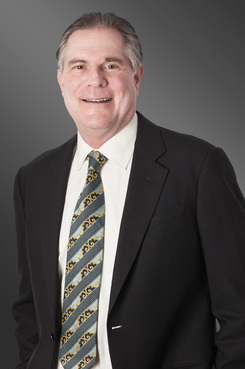Technique to Maximize Pass-Through Income Tax Break Won't Work for Florida
The Tax Cuts and Jobs Act provides a tax break for businesses conducted by pass-through entities (partnerships, LLC's and subchapter S corporations) which will allow a deduction of 20 percent of the business income, so that the owners will pay tax on only 80 percent of the business income.
February 15, 2018 at 11:45 AM
4 minute read

The Tax Cuts and Jobs Act provides a tax break for businesses conducted by pass-through entities (partnerships, LLCs and Subchapter S corporations) which will allow a deduction of 20 percent of the business income, so that the owners will pay tax on only 80 percent of the business income. But this tax break is not available to the owners of professional service businesses, like lawyers, accountants, physician, dentists and consultants, unless their total taxable income is less than $157,500 (or $315,000 for married taxpayers). Many tax advisers around the country are telling their professional service clients to spin-off the real estate used in their practice that is owned by the business, and charge rent to their practices. This would shift income from their professional practice (not eligible for the 20-percent deduction) to their separate office leasing business, which would be eligible for the tax break. Although this technique will be viable in most every state, it will not work in Florida because of the structure of our sales tax here.
Florida is one of the only states in the U.S. which imposes its sales tax on commercial real estate leases (Arizona is the other notable exception). The sales tax is due on all leases, even on a lease to related parties. The sales tax due on the lease will likely exceed the potential income tax savings resulting from the 20-percent deduction.
For example, let's say a lawyer with an associate and paralegal working for him owns his own office unit in an office condominium project, and nets $600,000 in taxable income. Since his taxable income is well above the $315,000 threshold amount for a joint filer, he will not be eligible for the 20-percent deduction because a law practice does not get the benefit from this tax break. However, if he spins-off the office condominium into a separate Subchapter S corporation (which is generally not a good idea anyway) and charges a reasonable rent, the office condominium unit company's profit would be eligible for the 20-percent deduction.
Let's assume he can charge $100,000 rent to his law practice on a triple net lease basis. In this case, he could shift $100,000 in income to the real estate business, which would be eligible for the 20-percent deduction. This would result in a $20,000 deduction on the income from the office leasing business, saving $7,000 in tax at the 35-percent marginal tax rate for this income bracket. Not a bad income tax result.
But the Florida sales tax due would be nearly as much or greater than the income tax savings. The sales tax would be due not only on the $100,000 in net rent, but also the real property taxes, maintenance and insurance paid by the law practice on the triple net lease. Let's assume these other charges are $20,000, the sales tax would be due on $120,000. Depending on the county, the sales tax would be between $6,960 (5.8-percent rate) and $8,160 (6.8-percent rate), potentially exceeding the income tax savings in this example.
In addition, transferring the office condominium to a related company would trigger stamp tax on the deed if there is a mortgage on the property, and a new set of mortgage tax if the bank wants the new real estate company to sign onto the mortgage. The transfer might also result in an increase in real property taxes if the property has been subject to the annual 10-percent cap on increases in assessed value.
So although this technique will be viable in other states, this is not the case in Florida. On the plus side, we don't have a personal income tax in the Sunshine State, and we also save money on snow removal costs. Some might say that's a fair trade-off.
Marvin A. Kirsner is the administrative shareholder of Greenberg Traurig's Boca Raton office, where his primary areas of practice deal with corporate, transactional and industry specific tax issues. He serves as the co-chair of the firm's state and local tax practice.
This content has been archived. It is available through our partners, LexisNexis® and Bloomberg Law.
To view this content, please continue to their sites.
Not a Lexis Subscriber?
Subscribe Now
Not a Bloomberg Law Subscriber?
Subscribe Now
NOT FOR REPRINT
© 2025 ALM Global, LLC, All Rights Reserved. Request academic re-use from www.copyright.com. All other uses, submit a request to [email protected]. For more information visit Asset & Logo Licensing.
You Might Like
View All

Don’t Forget the Owner’s Manual: A Guide to Proving Liability Through Manufacturers’ Warnings and Instructions
5 minute read

Trending Stories
- 1Who Are the Judges Assigned to Challenges to Trump’s Birthright Citizenship Order?
- 2Litigators of the Week: A Directed Verdict Win for Cisco in a West Texas Patent Case
- 3Litigator of the Week Runners-Up and Shout-Outs
- 4Womble Bond Becomes First Firm in UK to Roll Out AI Tool Firmwide
- 5Will a Market Dominated by Small- to Mid-Cap Deals Give Rise to a Dark Horse US Firm in China?
Who Got The Work
J. Brugh Lower of Gibbons has entered an appearance for industrial equipment supplier Devco Corporation in a pending trademark infringement lawsuit. The suit, accusing the defendant of selling knock-off Graco products, was filed Dec. 18 in New Jersey District Court by Rivkin Radler on behalf of Graco Inc. and Graco Minnesota. The case, assigned to U.S. District Judge Zahid N. Quraishi, is 3:24-cv-11294, Graco Inc. et al v. Devco Corporation.
Who Got The Work
Rebecca Maller-Stein and Kent A. Yalowitz of Arnold & Porter Kaye Scholer have entered their appearances for Hanaco Venture Capital and its executives, Lior Prosor and David Frankel, in a pending securities lawsuit. The action, filed on Dec. 24 in New York Southern District Court by Zell, Aron & Co. on behalf of Goldeneye Advisors, accuses the defendants of negligently and fraudulently managing the plaintiff's $1 million investment. The case, assigned to U.S. District Judge Vernon S. Broderick, is 1:24-cv-09918, Goldeneye Advisors, LLC v. Hanaco Venture Capital, Ltd. et al.
Who Got The Work
Attorneys from A&O Shearman has stepped in as defense counsel for Toronto-Dominion Bank and other defendants in a pending securities class action. The suit, filed Dec. 11 in New York Southern District Court by Bleichmar Fonti & Auld, accuses the defendants of concealing the bank's 'pervasive' deficiencies in regards to its compliance with the Bank Secrecy Act and the quality of its anti-money laundering controls. The case, assigned to U.S. District Judge Arun Subramanian, is 1:24-cv-09445, Gonzalez v. The Toronto-Dominion Bank et al.
Who Got The Work
Crown Castle International, a Pennsylvania company providing shared communications infrastructure, has turned to Luke D. Wolf of Gordon Rees Scully Mansukhani to fend off a pending breach-of-contract lawsuit. The court action, filed Nov. 25 in Michigan Eastern District Court by Hooper Hathaway PC on behalf of The Town Residences LLC, accuses Crown Castle of failing to transfer approximately $30,000 in utility payments from T-Mobile in breach of a roof-top lease and assignment agreement. The case, assigned to U.S. District Judge Susan K. Declercq, is 2:24-cv-13131, The Town Residences LLC v. T-Mobile US, Inc. et al.
Who Got The Work
Wilfred P. Coronato and Daniel M. Schwartz of McCarter & English have stepped in as defense counsel to Electrolux Home Products Inc. in a pending product liability lawsuit. The court action, filed Nov. 26 in New York Eastern District Court by Poulos Lopiccolo PC and Nagel Rice LLP on behalf of David Stern, alleges that the defendant's refrigerators’ drawers and shelving repeatedly break and fall apart within months after purchase. The case, assigned to U.S. District Judge Joan M. Azrack, is 2:24-cv-08204, Stern v. Electrolux Home Products, Inc.
Featured Firms
Law Offices of Gary Martin Hays & Associates, P.C.
(470) 294-1674
Law Offices of Mark E. Salomone
(857) 444-6468
Smith & Hassler
(713) 739-1250






